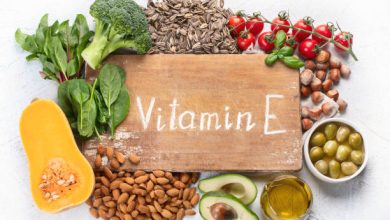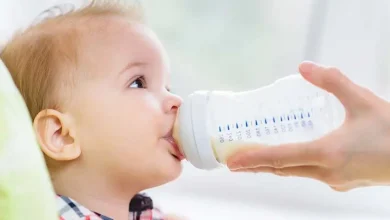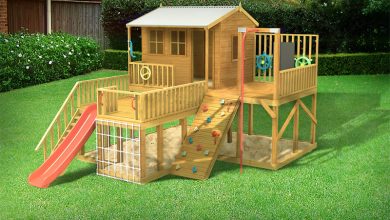Signs and Symptoms of Dehydration and How to Recognize Early Warning Signs for Joint Pain
We’ve all heard the mantra: “Drink at least 8 glasses of water a day.” And while most of us are keen on quenching our thirst, very few truly understand the comprehensive impact that dehydration can have on our body – particularly when it comes to joint health.
The Basics of Dehydration
Dehydration occurs when the body loses more fluids than it’s taking in, leading to a shortage of water for normal bodily functions. As simple as it may sound, dehydration can lead to a slew of complications if not addressed promptly. The effects of dehydration range from mild headaches to more serious issues, joint pain from dehydration.
Early Warning Signs of Dehydration
1. Thirst and Dry Mouth: One of the most obvious signs is an unquenchable thirst. Though it’s a clear signal from our body, many people still tend to ignore it. Dry mouth and a swollen tongue can also accompany this.
2. Fatigue and Dizziness: These symptoms can easily be mistaken for other conditions or simply a long day. However, chronic fatigue or sudden dizziness can indicate a lack of adequate fluids.
3. Dark Yellow Urine: Your urine’s color is a straightforward indicator of your hydration status. Clear or pale yellow suggests good hydration, while dark yellow or amber-colored urine typically points to dehydration.
The Link Between Dehydration and Joint Pain
Joints, the connectors between bones, require adequate hydration to function correctly. Our joints have cartilage and synovial fluid, which reduce friction and allow smooth movements. These elements are mainly composed of water. When the body is dehydrated, these parts can’t work as effectively, leading to increased friction, inflammation, and ultimately, pain.
Considering the essential role that hydration plays in joint health, it’s hardly surprising that one of the lesser-known symptoms of dehydration is joint discomfort.
Recognizing Joint Pain as a Symptom of Dehydration
Here’s where it gets interesting: Not everyone will immediately correlate joint pain with dehydration. But here are some markers to help you connect the dots:
1. Onset after Physical Activity: If you’ve been physically active, especially in hot conditions, and haven’t been replenishing your fluids adequately, any joint pain experienced might very well be due to dehydration.
2. Accompanying Dehydration Symptoms: Experiencing joint pain alongside other dehydration symptoms, such as dry mouth or dark urine, can be an indication that your body needs more fluids.
3. Temporary Relief After Hydration: If you notice a temporary relief in joint pain after increasing your water intake, there’s a good chance the discomfort was rooted in dehydration.
The Impact of Chronic Dehydration on Joint Health
While occasional bouts of dehydration can be quickly remedied with increased fluid intake, chronic dehydration can have lasting effects on the joints. Over time, reduced hydration weakens the cartilage, reducing its shock-absorbing capabilities. This not only leads to increased friction and pain but also makes the joints more susceptible to injuries and wear-and-tear.
Factors Increasing Risk of Dehydration
1. Age: As we age, the body’s ability to conserve water diminishes, and our thirst sense becomes less acute. This can make older adults more susceptible to dehydration and subsequently, joint pain.
2. Medications: Some medications, especially diuretics or those that regulate blood pressure, can increase urine output, potentially leading to dehydration if fluid intake isn’t adjusted.
3. Illnesses: Fever, infections, or any diseases that cause vomiting or diarrhea can result in rapid fluid loss.
4. Alcohol Consumption: Alcohol is a diuretic, which means it promotes the production of urine, potentially leading to dehydration if not consumed in moderation.
Stay Hydrated, Stay Mobile
It’s crucial not only to recognize the signs of dehydration but also to act on them promptly. Regularly sipping water throughout the day, even when you’re not thirsty, can be an effective strategy. Additionally, incorporating foods with high water content, such as cucumbers, oranges, and strawberries, can further aid in maintaining hydration.
For those who engage in vigorous activities or live in particularly hot climates, it may be beneficial to increase water intake even more and consider drinks with added electrolytes for optimal hydration.
Hydration Tips for Joint Health
1. Infused Water: For those who find plain water dull, adding slices of fruits, herbs, or cucumbers can provide a refreshing twist and make it more enjoyable to drink.
2. Monitor & Set Goals: Keeping a water diary or using hydration tracking apps can be useful tools in ensuring you’re getting enough fluids daily.
3. Limit Caffeine: While a morning cup of coffee isn’t harmful, excessive caffeine can lead to dehydration. Balance your intake with ample water.
What’s next?
To sum up, understanding the factors that can elevate your risk of dehydration and taking active steps to ensure you’re well-hydrated can have a profoundly positive effect on your joint health, allowing you to stay active and pain-free. Recognizing the early signs of dehydration and acting on them can prevent various complications, including the often overlooked joint pain from dehydration.














